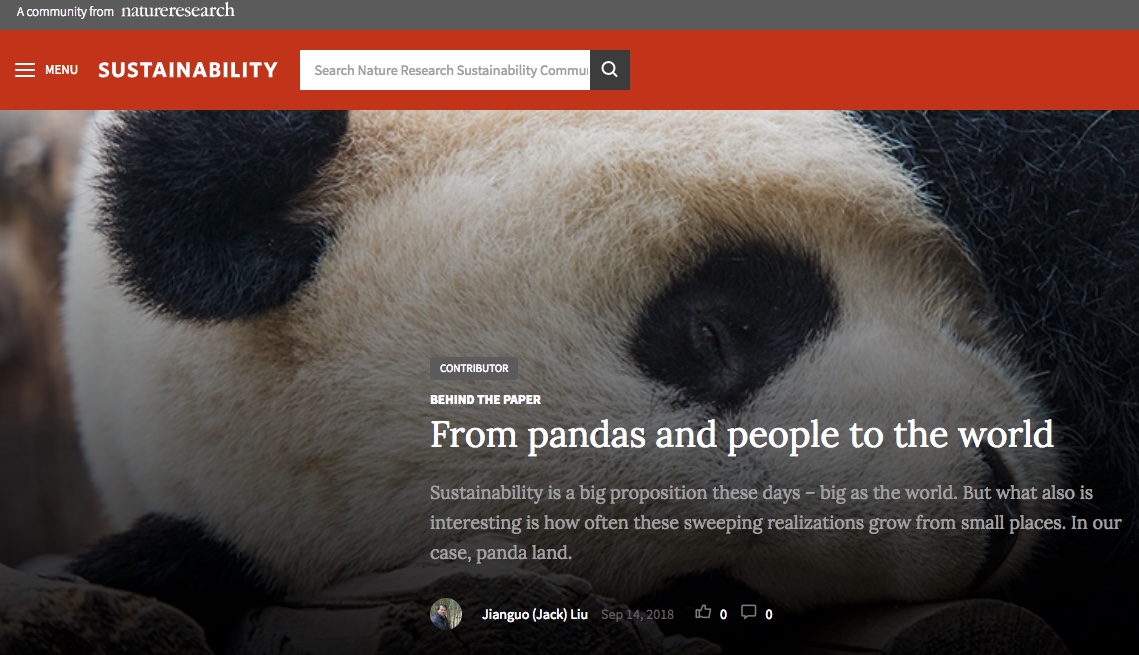Sustainability without borders – new ways to integrate sciences
Add Summary

In today’s Nature Sustainability, an international group of scientists address both the past and the future of sustainability science and determine that borders – institutional, scientific and geographic are roadblocks to solutions.
“Nexus Approaches to Global Sustainable Development” by Michigan State University’s Jianguo “Jack” Liu and scientists from the United States, the United Kingdom, Sweden, Germany and China, address how science and policymaking approach enormous challenges such as climate change, food insecurity, water scarcity and energy use.
At its heart is the United Nations’ 17 Sustainable Development Goals (SDGs), and the inherent tendency to achieve one at the cost of others.
This paper grew out of a 2015 Science paper Liu, MSU’s Rachel Carson Chair in Sustainability, published, with others, calling for integrating the sciences of both humans and nature.
“The real world is integrated,” Liu said at that time. “Artificially breaking down the real world into separate pieces has caused many global problems. Solving these problems requires systems integration – holistic approaches to integrate various pieces of the real world at different organizational levels, across space and over time.”
Now science is advancing beyond science being siloed into disciplines. The nexus approaches emphasize the importance of understanding connections, synergies and trade-offs among different sectors and factors, such as food, energy, water, climate, and health. Liu and his colleagues propose a world that incorporates measuring SDGs by the metrics of the real world – a dynamic, sometimes messy integration of many moving parts -- the health impacts of alternative diets, of alternative energy sources, greenhouse gas emissions, biodiversity, water and energy, land use, the ways and whys people migrate and how that affects the natural resources that support wildlife, fish, clean water and air.
Nothing exists in isolation. Humans and nature are metacoupled – they interact within a specific place, between adjacent places, and between distant places around the world. Integration opens up the ability to appreciate synergy and co-benefits, as well as unforeseen consequences to single-source solutions.
The paper proposes new tools for science to manage and support this new way of exploring and testing paths to sustainability.
In addition to Liu, the paper was written by Vanessa Hull, H. Charles Godfray, David Tilman, Peter Gleick, Holger Hoff, Claudia Pahl-Wostl, Zhenci Xu, Min Gon Chung, Jing Sun, and Shuxin Li.
The work was funded by the National Science Foundation and Michigan AgBioResearch.



 Print
Print Email
Email

